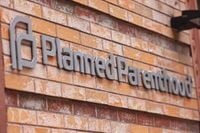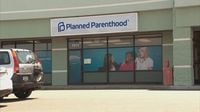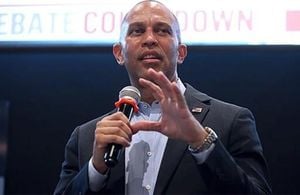On September 11, 2025, a federal appeals court handed down a ruling that has sent shockwaves through the U.S. healthcare landscape, particularly for low-income Americans who rely on Medicaid for essential health services. The decision, rendered by a three-judge panel of the First Circuit Court of Appeals, allows the Trump administration to block Medicaid funds from reaching Planned Parenthood clinics while ongoing legal challenges play out. This development marks a pivotal moment in the nation’s long-running debate over reproductive health funding, with ramifications stretching from Maine to Montana, Indiana to Texas, and well beyond.
The roots of this legal battle trace back to President Donald Trump’s signature tax legislation, the H.R. 1 bill, passed in 2025. Tucked into its provisions was a clause instructing the federal government to halt Medicaid payments for one year to abortion providers who received more than $800,000 from Medicaid in 2023—a category that includes Planned Parenthood, the nation’s largest abortion provider. The law’s impact is not limited to abortion services; it also affects reimbursements for a wide range of routine healthcare, from contraception and cancer screenings to sexually transmitted infection (STI) testing and pregnancy care. Federal law already prohibits Medicaid funds from being used for abortions, except in limited circumstances, but this new provision goes further by targeting organizations that offer abortion among other services.
According to AP, a federal judge in July had temporarily blocked the enforcement of this provision, requiring that Planned Parenthood clinics nationwide continue to be reimbursed for Medicaid-funded care. However, last week’s appeals court ruling overturned that injunction, allowing the funding cuts to take effect immediately while the case continues through the courts. The U.S. Department of Health and Human Services, named as a defendant in the lawsuit filed by Planned Parenthood Federation of America and its affiliates in Massachusetts and Utah, did not immediately comment on the decision.
The implications are staggering. Planned Parenthood said the ruling means more than 1.1 million patients nationwide can no longer use their Medicaid insurance at its health centers. This puts as many as 200 clinics at risk of closure, a threat that looms especially large in rural and underserved communities where alternatives may be scarce. "Stripping Planned Parenthood from the country’s Medicaid program puts essential care out of reach for more than a million patients, disproportionately impacting Black communities, Indigenous communities, other people of color, rural communities, and people with low incomes," said Rebecca Gibron, chief executive officer of Planned Parenthood Great Northwest, Hawaiʻi, Alaska, Indiana, Kentucky (PPGNHAIK), as quoted by AP.
In Indiana, the stakes are particularly high. PPGNHAIK reported that more than 35,000 patients visit Planned Parenthood health centers in Indiana each year, and 15,000 of them used Medicaid last year. The organization estimates its centers save Indiana $13 million annually by preventing unplanned pregnancies, catching cancers early, and controlling the spread of STIs. Starting in October, patients who previously relied on Medicaid will need to pay out of pocket—a daunting prospect for many. "We are committed to our patients first and foremost," Gibron emphasized. "We are here to support people who use Medicaid, ensuring they can receive the care they need now, while we pursue every avenue to restore full access. We are in this for the long haul and our doors remain open."
Montana faces similar challenges. According to Daily Montanan, roughly a third of the 10,000 patients who receive care at Planned Parenthood centers in Montana use Medicaid. The organization operates clinics in Lewis and Clark, Cascade, Missoula, and Yellowstone counties—areas where access to family planning, abortion care, and even primary care is already limited. President and CEO Martha Fuller said the organization is determined to keep its four health centers open, despite an estimated reimbursement funding gap of nearly $1 million. "We are going to have to rely on our communities to step up, and we’ll be focused heavily on fundraising and gaining community support so we can continue to keep those doors open and see those folks," Fuller told the Daily Montanan. She added, "No matter what, personal medical decisions should be between a patient and their provider."
Planned Parenthood of Northern New England faces a $900,000 loss in funding due to the ruling, according to NEWS CENTER Maine. Lisa Margulies, Vice President of Public Affairs, noted that in the 2024 fiscal year, 27 percent of the 7,100 patients who received care at Maine health centers were on Medicaid. "The truth is, if we fall out, cancers will go undetected; patients won't get the birth control they need to plan their families and futures," Margulies warned. She emphasized that Planned Parenthood is not reimbursed at the full price for the services it provides to Medicaid patients, making the funding gap even more acute.
As Planned Parenthood scrambles to fill the financial void through private fundraising and community support, the Trump administration and its allies argue that other healthcare providers are ready and able to step in. According to a report by the Charlotte Lozier Institute, thousands of federally qualified health centers, rural health clinics, pregnancy centers, and private doctors offer comprehensive healthcare for women nationwide. The institute estimates there are 3,300 rural health clinics providing women’s health services, and 2,750 nonprofit pregnancy resource centers across the country, most of which provide free ultrasounds, STI tests, counseling, and other support. In Texas, for example, after abortion bans were enacted, state funding for women’s health programs was substantially increased, with more than $447 million allocated in recent years and Medicaid covering over half of all births, as reported by The Center Square.
Critics of Planned Parenthood argue that the organization is not irreplaceable. The Charlotte Lozier Institute notes that in 2021, Planned Parenthood served just 11 percent of Medicaid family planning clients, according to data from the Kaiser Family Foundation. Tessa Cox, a senior research associate at the institute, said, "Now, with tax dollars being redirected at the state and federal levels, abortion advocates insist that Planned Parenthood is irreplaceable. Women deserve to know they have health care options that extend beyond a group dedicated to ending unborn life."
Yet, for many patients, the loss of Planned Parenthood as a Medicaid provider is deeply personal. Jean Malloy, a Maine resident in her seventies, reflected on the decades-long struggle for women’s rights. "Back in the late 60s and 70s, we fought for civil rights, human rights, women's rights, and yet here we are doing it again in 2025. How is this possible in the United States of America?" she asked, as quoted by NEWS CENTER Maine.
The legal battle is far from over. Planned Parenthood and its allies have vowed to fight the ruling at every turn, seeking to restore Medicaid funding and preserve access to care for millions of Americans. Meanwhile, the Trump administration and its supporters remain steadfast, insisting that taxpayer dollars should not support organizations that provide abortions, regardless of the other services they offer.
As the case winds its way through the courts, the fate of more than a million Medicaid patients—and the future of reproductive healthcare access in the U.S.—hangs in the balance.





